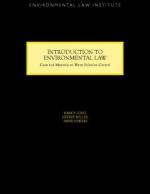|
This section contains 871 words (approx. 3 pages at 300 words per page) |

|
Any physical, biological, or chemical change in water quality that adversely affects living organisms or makes water unsuitable for desired uses can be considered pollution. Often, however, a change that adversely affects one organism may be advantageous to another. Nutrients that stimulate growth of bacteria and other oxygen-consuming decomposers in a river or lake, for example, are good for the bacteria but can be lethal to game fish populations. Similarly, warming of waters by industrial discharges may be deadly for some species but may create optimal conditions for others. Whether the quality of the water has suffered depends on your perspective. There are natural sources of water contamination, such as arsenic springs, oil seeps, and sedimentation from desert erosion, but most environmental scientists restrict their focus on water pollution to factors caused by human actions and that detract from conditions and uses that humans consider desirable...
|
This section contains 871 words (approx. 3 pages at 300 words per page) |

|


